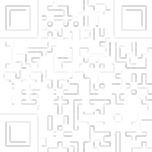Navigation
FAQ – personalised tumor therapy
Our FAQ is divided into two sections: For patients and for healthcare professionals. Should this page not answer all of your questions, please contact us by e-mail.
General questions
What distinguishes Reverse Clinical Engineering® from other methods like sequencing?
ASC Oncology’s method goes one step further. In gene sequencing, genetic material of the tumor is analyzed, which forms the template for the behavior of the tumor cell. The analysis can reveal gene alterations that have led to the development of cancer. For some of these alterations, so-called targeted therapies are available that target the altered features of cancer cells. However, genetic analysis cannot determine whether an individual patient will respond to a targeted therapy, as the method cannot answer this question.
This is where ASC Oncology’s test procedure comes in. The Reverse Clinical Engineering® examines the behavior of the tumor cell’s themselves rather than the genes or the template for the cell’s behavior. It tests in the laboratory whether a (targeted) therapy inhibits the growth of the tumor cells or not. In this way, a therapy can be selected that offers the best prospects of treatment success for the individual cancer patient.
What are the advantages of Reverse Clinical Engineering® for patients?
Cancer is a highly individual disease. Every tumor reacts differently to a chemotherapy, but this only becomes apparent in the course of treatment. If a patient’s tumor does not respond to a prescribed drug, an alternative treatment must be found quickly, the effectiveness of which also remains to be determined. This takes time, during which the cancer can continue to grow. Reverse Clinical Engineering® tests drug efficacy on your own tumor cells even before therapy begins, eliminating all the drugs which are unlikely to be effective and identifying those which have a high probability of being effective. This allows the optimal cancer drug for your disease to be selected right from the start.
Does the Reverse Clinical Engineering® increases the chances of cure?
How does Reverse Clinical Engineering® testing procedure work?
Your treating physician removes a piece of cancer tissue during a scheduled surgery or biopsy and sends it directly to ASC Oncology’s laboratory. Our team of scientists grows the tumor cells in the laboratory to generate tiny 3D copies of the tumor, so-called tumor organoids. Using these copies, we can test all the drugs considered suitable for treating your tumor. Like this, the most effective cancer drug can be identified before starting treatment. Our results provide you and your physicians with the information needed to develop a personalized cancer therapy, enabling higher treatment success rates compared to the classical approach.
Does the Reverse Clinical Engineering® require additional interventions?
My tumor has already been removed. Can I still undergo the test?
A tissue sample of the tumor has already been taken. Can this sample be used for the test procedure?
No, most likely not. Reverse Clinical Engineering® requires a fresh tissue sample with living tumor cells. Very rarely, it may happen that a tissue sample is stored in such a way that living cells can be obtained from it. However, this is very rarely the case. If you are unsure, please contact us and we will find out whether your sample is suitable.
I am very satisfied with the performance of my physician. Why should I use Reverse Clinical Engineering®?
Does Reverse Clinical Engineering® testing procedure or ASC Oncology replace my treating physician?
Why haven’t I received any information about Reverse Clinical Engineering® testing procedure from my doctor or clinic?
Oncologists and patients have only been able to use the test procedure for a few years. We are constantly working to increase awareness and expand our collaborations. Nevertheless, it may be that your treating physician has not yet heard of us. If you wish, we can get in touch with him.
Who is ASC Oncology and what expertise do you have?
ASC Oncology was founded by leading scientists in the fields of pathology, biology, biochemistry, biotechnology and tumor biology. Working together with lawyers and business informatics specialists, we form a team with years of experience dedicated to the fight against cancer and the advancement of personalized tumor therapy. Our goal is to find the optimal chemotherapy for each individual patient.
Where is ASC Oncology located?
ASC Oncology is located on the Campus Berlin-Buch. You can find directions here.
Can I use the Reverse Clinical Engineering® in my region?
Do I have to come to ASC Oncology's laboratory in Berlin for tumor sample collection?
Can the Reverse Clinical Engineering® test procedure be used for all types of cancer?
Are there any side effects?
How long does the Reverse Clinical Engineering® testing procedure take?
My doctor recommends a therapy that does not agree with the results of Reverse Clinical Engineering®. What should I believe? Who can I turn to?
Will my health insurance pay for the Reverse Clinical Engineering®?
I still have some questions which were not answered here. Who can I contact?
Send your question to hello@asc-oncology.com, call us on 0800 6988667 or book a callback using the green button at the bottom right of the page.
For healthcare professionals
How long does the analysis take?
How can I send a sample to you?
Which patients are suitable for this procedure?
Where can I find the corresponding documents?
Which classes of drugs/substances do you test?
We test the classical chemotherapy drugs (e.g. anthracycline, taxanes, platinum derivates, vinca alkaloids). We also test small molecules (-nibs) and therapeutic antibodies (-mabs, -mubs). We can test all substances individually or in combination.
